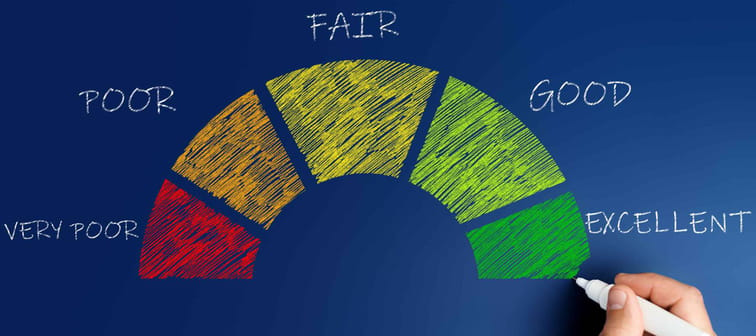What is a secured credit card?
A secured card basically functions the same way as a regular credit card except in one significant way: The cardholder guarantees the repayment of the debt they accumulate on the card by providing a cash deposit. In essence, the cardholder “secures” their credit card with their own money.
The deposit required by the issuing financial company ranges, but is usually anywhere from the exact amount of the secured credit card’s spending limit, to double the amount of the limit. For example, if you want a spending limit of $500, you’ll probably need to deposit $500 to $1000 dollars. If you miss a payment, the credit card company can draw on your deposit to cover your balance.
It’s this deposit that differentiates a secured card from an unsecured card/regular credit card. With unsecured cards, consumers don’t provide the credit card company with a deposit against non-repayment of their accumulated balance. In effect, their good credit score acts as a guarantee of repayment.
Who should get a secured credit card?
A secured card is the ideal solution for those with a bumpy or non-existent credit history, because they are so much easier to get than an unsecured card. The requirements for approval are usually minimal, with a quick and easy application process that often won’t involve a credit check. Some unsecured cards even offer guaranteed approval. Furthermore, a few card issuers include attractive additional features that are especially suited to poor-credit Canadians, like a low interest rate; reasonable yearly fees; and simple online account management.
Even though you supply the deposit, secured cards usually feature a much lower spending limit than unsecured cards. This low limit is a good way to help you keep your purchases in check and develop smart spending habits that will ensure your credit record remains rock solid. Remember, the point of getting a secured card is to boost your credit rating, not increase your spending and go bust.
Refresh your score
Think the benefits of a secured credit card sound too good to be true? Let’s take a look at one of the better-known secured cards in Canada, issued by Refresh: Responsible Refresh cardholders have reported an increase in their credit scores by 100 points or more within as little as 6 months of card use.
Judicious use of a secured card is one of the best ways to get your credit score back on track, and a big climb in your score is possible as long as you’re responsible with your spending and repayments.
What can you do with a credit score increase of 100+ Points?
A jump of 100 points might be enough to bump a credit score up from the below average range into the average/fair range. That’s a critical jump, because it could make you eligible for an unsecured card, which is a vital step in your personal credit recovery journey. It would put you well on your way to qualifying for other financial milestones like a mortgage or a line of credit. You might even be eligible for more rewards-rich credit cards and for lower interest rates on loans.
More helpful strategies
Feeling ambitious? Combining the secured credit card with the credit score strategies listed below can lead to even higher leaps in your credit score in a much shorter amount of time.
- Make timely payments. Payment history is the most influential component of your credit score and you’ll be penalized for late payments.
- Credit usage (a.k.a. ‘credit utilization’) is another important factor that counts toward your credit score. Keeping your overall usage of credit products below 30% of your limits signals to creditors that you’re responsible with borrowing.
- Remember, applying for an unsecured card can lead to what’s known as a “hard check” on your credit history, which can negatively affect your score. So don’t apply for credit cards that are out of your credit score league at this time. For reference, Money.ca usually posts approximate credit score requirements for each card we review.
A secure solution
The smart use of a secured card is a credit score boon with virtually no drawbacks, giving you the convenience and score-boosting power of a credit card despite having no credit history or poor past spending habits. The only potential shortcoming of a secured card is that you will have to provide the initial deposit—but keep in mind that you’ll get all your money back if you close the account with no balance remaining. And, rather than considering it a drawback, think of the deposit as an investment in your future and financial health. If you don’t think a secured credit card is right for you, there are other tools you can use to improve your credit use to improve your credit that you can consider as well.






